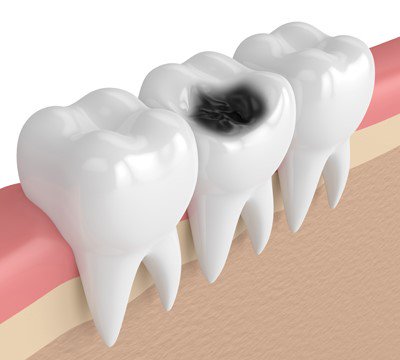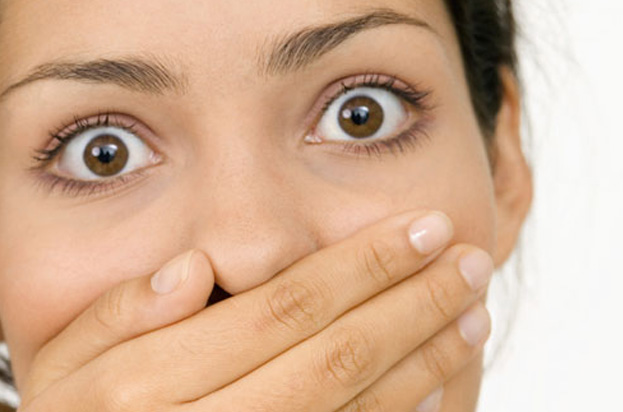
Tooth Decay Dangers: The Ugly Truth
As one of the most fundamental oral health issues that you can face, Tooth decay remains a serious but often overlooked aspect of one’s overall health.
While once considered as little more than a minor nuisance, in more recent years, various long-term health issues have been discovered to be linked to (or directly caused by) tooth decay. While such recent discoveries have forced the health industry to reevaluate their stance on tooth decay and take the issue much more seriously, according to The National Institute of Dental and Craniofacial Research, approximal 85% of American adults between the ages of 20-64 have some form of tooth decay in a statistic that unfortunately continues to remain stagnant. But as sobering as this statistic might be, tooth decay isn’t really THAT dangerous is it?
Well to answer that, it’s important to have a clear understanding of what exactly tooth decay is and how it’s able to manifest. The information provided below will hopefully present you with not only a basic understanding of tooth decay, but also what sort of hazards the illness may bring.
Tooth Decay Dangers: How It Happens
As its name implies, tooth decay is a condition in which the build-up of acidic material in a person’s mouth causes the outer layers of their teeth to slowly begin to erode and dissolve. When a tooth has lost its protective outer coating, it is left vulnerable to the elements causing the tooth to wither and begin to break down, thereby beginning the process of tooth decay. Being a progressive illness, tooth decay is not something that will display significant signs immediately, but rather will develop over an extended period, and gradually worsen over time. Certainly, the idea of damaged or rotten teeth may sound unpleasant, what truly makes this an urgent issue are the infectious complications that can occur as a result of tooth decay. If allowed to spread, the complications can be serious or even life-threatening if left improperly treated.
Read More: Tooth Decay: A Sickly, Sweet Dilemma
Tooth Decay Dangers: Signs & Symptoms
As mentioned previously, the early symptoms of tooth decay are relatively minor and easy to dismiss. Unfortunately, the tendency to ignore such conditions can be a very costly error as it allows the illness to progress and become increasingly difficult to treat. While not all of the symptoms listed here are definitive signs of tooth decay, if you are experiencing any such symptoms, we recommend you contact your dental practitioner to receive a formal checkup.
- Unexplained toothaches or spontaneous tooth sensitivity
- Moderate to severe pain while consuming hot/cold foods or drinks
- Visible holes, stains, or crevices on a tooth’s surface
- Chronic foul breath
- Alterations in bite or difficulty while chewing
- Discoloration of tooth and surrounding gumline
Read more here about how to stop bad breath.
Tooth Decay Dangers: The Domino Effect
As nasty as tooth decay can be, failing to recognize the symptoms and assess the condition can have terrifying ramifications! The crux of this concern is the propensity for bacteria to spread, thus setting off a chain reaction within the body. When teeth have decayed due to bacteria, the excess buildup of bacteria is certain to spread to the surrounding gumline thereby causing an infection in the gums, or what’s known as Periodontitis.
Related Article: Do you sip and snack all day? Read more about how sugar can harm your teeth and cause decay.
When a serious oral infection occurs, there is always the potential for the excess bacteria to spread to the bloodstream and possibly reach other regions of the body.
This is particularly dangerous for two reasons:
- The bacteria’s uncanny ability to interact with and exacerbate certain pre-existing health conditions, (such as Diabetes).
- Perhaps an even greater concern is the affect the bacteria can have on the cardiovascular health of the individual.
As something of an umbrella term, cardiovascular or heart disease pertains to any such conditions that may block the heart’s valves or restrict its blood flow in anyway.
In severe cases of tooth decay, when the excess bacteria enter the body’s blood vessels, it will begin to travel throughout the body. If the bacteria can reach the heart, it will inflame its vessels thereby causing blood clots to develop and damage to occur. This damage will slowly began restricting the flow of blood, effectively choking the heart and forcing it to pump faster while producing less and less.
Given this, skeptics in both the dental and medical fields are quick to point out that despite the previous information, tooth decay does not guarantee an eventual heart attack. While this is certainly true, according to a recent study conducted by Harvard University, individuals afflicted with significant tooth decay have at least a two to three times higher probability of suffering a heart attack, stroke, or other sort of cardiovascular-based issue; sadly, proving the correlation to be self-evident.
Tooth Decay Dangers: Prevention Is the Answer!
So, to answer the question posed earlier, unfortunately the answer is: “YES”. If left untreated for too long and allowed to progress to advanced stages, tooth decay can be THAT dangerous and YES it CAN actually KILL You.
However, keep in mind that tooth decay requires time to reach this critical point, and much like a runaway train, severe tooth decay is only hard to stop or slowdown once it gets going, so the key is prevention! By preventing tooth decay before it starts or stopping it while it’s still in the early stages, are your best bet to preventing tooth decay.
Your friends at Overland Park Dentistry are here to help you keep tooth decay dangers at bay! By scheduling your routine six-month checkups with Dr. Kimes and his staff, you will help keep your teeth and gums healthy.
Local dentist, Dr. Charles R. Kimes, DDS, and his team at Overland Park Dentistry look forward to having the opportunity to care for you and your family with preventative, restorative or cosmetic dentistry. To schedule your dental appointment with your Overland Park Dentist, contact us at our south Overland Park office at (913) 647-8700 or our north Overland Park office at (913) 341-2380.

